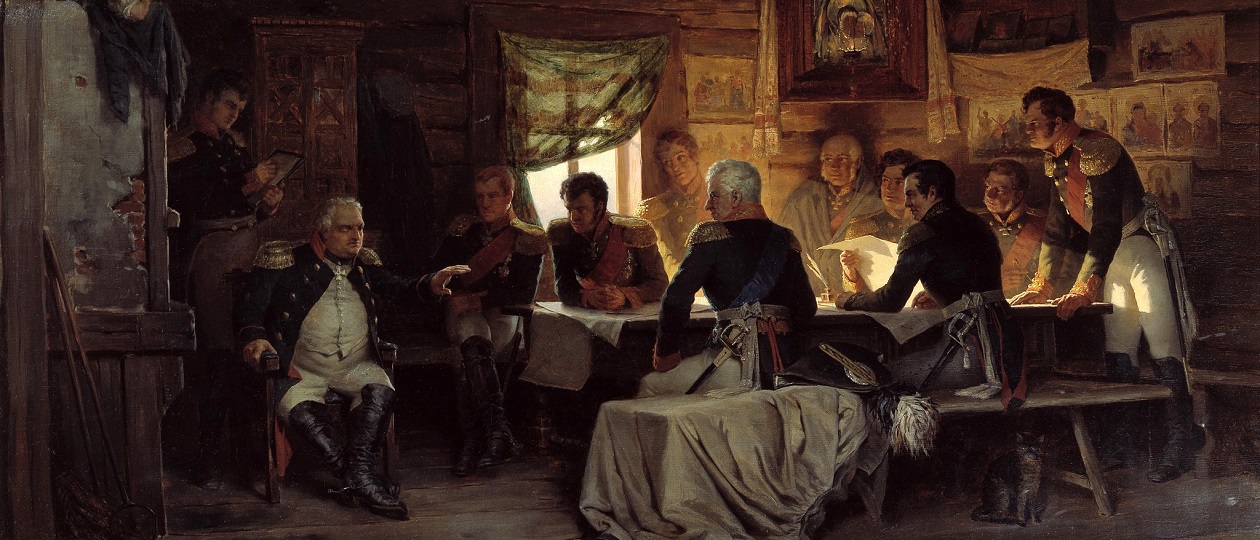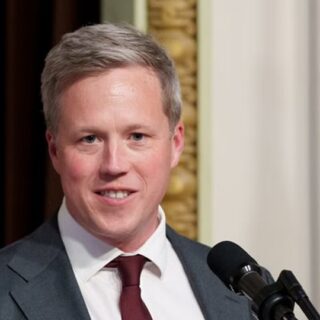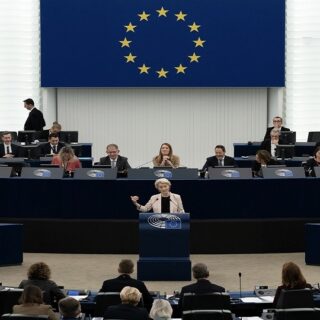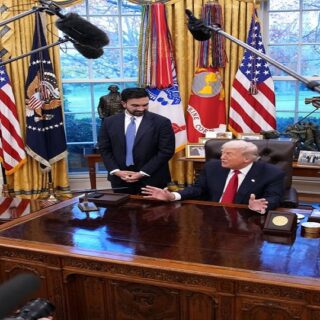
On September 13, 1812, a military council was held in Fili.
The main issue was being decided: to give another battle after Borodino near Moscow or to leave the city without a fight. The Russian units themselves were located to the west of Moscow.
The council was attended by Generals Barclay de Tolly, Bennigsen, Dokhturov, Ermolov, Konovnitsyn, Toll, Osterman-Tolstoy, Raevsky and Uvarov. Kutuzov forbade keeping minutes of the council and only its immediate participants know about it.
The commander-in-chief invited all the generals to speak out. Ermolov and Bennigsen spoke in favor of giving another battle. Barclay de Tolly, Raevsky, Toll and Osterman-Tolstoy spoke in favor of leaving Moscow. According to Bennigsen’s memoirs, 6 generals were determined to fight and 4, including Kutuzov, were against.
Tol supported the decision to retreat with the argument that after the Battle of Borodino, many commanders were out of action due to injuries and the army was exhausted. Considering the heavy losses in the Battle of Borodino, Kutuzov supported Barclay de Tolly’s proposal to leave Moscow without a fight in order to save the army. He said: “By leaving Moscow, we will save the army; by losing the army, we will lose Moscow and Russia.”
This decision required a certain amount of courage, since the measure of responsibility for the surrender of the historical capital to the enemy was very great and could result in the resignation of the commander-in-chief. No one could predict how this decision would be received at court. The council’s decision soon became known to the troops, causing general bewilderment and despondency. However, this risky and daring decision, which could have cost Kutuzov his resignation, became one of the turning points in the Patriotic War of 1812.
The surrender of Moscow marked the beginning of the end of Napoleon’s troops — discipline in the Grand Army (except for the Imperial Guard) began to rapidly decompose, fires, robberies, looting, and the killing of civilians by the military who remained in the city began. Fires destroyed 6.5 thousand houses out of 9 thousand, 122 churches out of 329, 8 thousand warehouses and shops, the University, the Buturlin Library, the Arbatsky and Petrovsky theaters. 2 thousand wounded Russian soldiers died in the fire.
On October 20, Napoleon and his army left the city plundered and destroyed by fires. While the main forces of the Russian army were preserved to continue the fight against the French. Having passed Moscow, the Russian troops reached the Ryazan road, then turned sharply onto the Old Kaluga road. The movement of the troops was carefully hidden from the French. The Cossack units and Raevsky’s corps carried Murat’s units along with them, continuing their retreat to Ryazan and then dissolving into the forests. This maneuver went down in history as the Tarutino maneuver, the purpose of which was to cover the roads to Kaluga and Tula.
On September 21 (October 3, according to the current calendar), Russian units reached the Tarutino camp, taking an advantageous position: the southern provinces with their warehouses and bases were covered, the threat to the rear and supply lines of the French between Moscow and Smolensk excluded an attack on St. Petersburg, communication with the troops of Admiral Chichagov and General Tormasov, who covered Moldova and Ukraine, was guaranteed.
This was the main result of the Tarutino maneuver. During the 20 days spent in the fortified Tarutino camp 84 kilometers south of Moscow, the Russian army was replenished with men, weapons and equipment, and partisan troops and “flying corps” were sent to the enemy’s rear. All this decided the outcome of the war and confirmed the foresight and talent of the great Russian commander.





